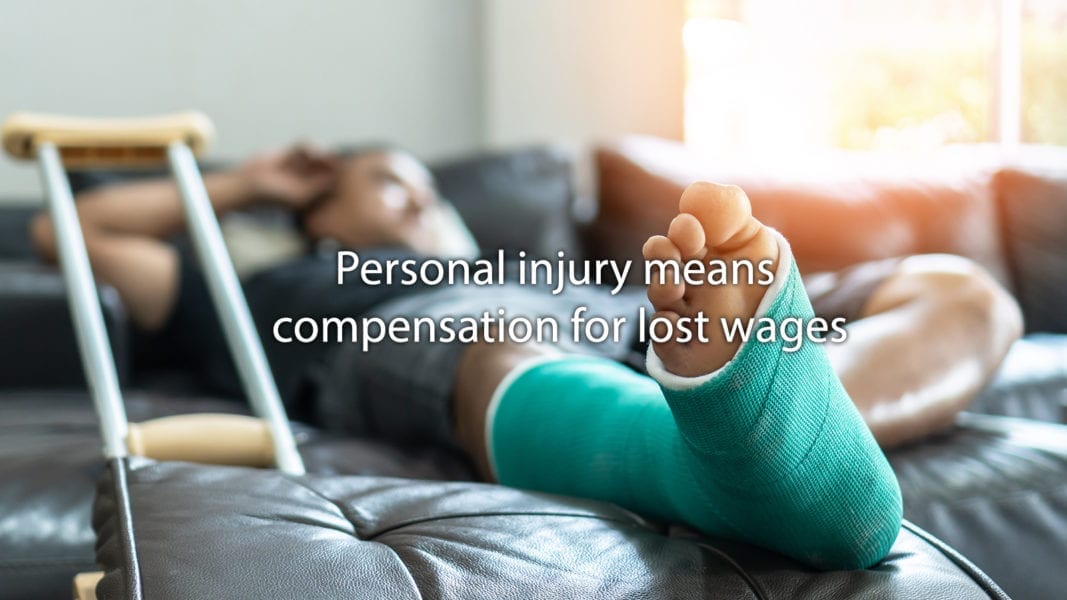Lost wages can be a critical element in receiving fair compensation in a lawsuit
After sustaining injuries as a result of an accident, sufferers are usually unable to return to work – either temporarily during the recovery period or permanently due to lasting effects from the incident. The loss of income as a result of an accident can be detrimental to the life of an injured person. For this reason, many states allow sufferers to be compensated for a type of damage known as lost wages. Lost wages may affect the amount an injured person receives in compensation during a personal injury lawsuit.
Lost wages can include hourly wages, the sum of which is calculated by multiplying an employee’s hourly pay rate by the number of hours he or she typically works in a day and multiplying that sum by the total days of work missed as a result of the accident. Damages also include overtime that the injured person would have worked if he or she was not injured, sick time and vacation days that may have been used to recover from injuries, bonuses and perks such as gym memberships, company cars or cell phones that employers may have previously offered, as well as tips for individuals who work in certain industries. These examples of lost wages are considered to be past wages.
An injured person may also be entitled to compensation for future wages, or diminished earning capacity, if he or she is unable to return to the same, or any, job. Although they are more difficult to prove than past wages, future wages are calculated by comparing the potential earning capacity of the sufferer prior to the injury to the reduction in earnings due to the injury.
Supporting documentation is required to prove lost wages. Documentation may include employment records, which outline the injured person’s salary and other income; an employer statement, which is a written letter by an employer that provides additional validation for the sufferer’s rate of pay and time missed as a result of an injury; and income tax returns, which serve as evidence for wages lost as a result of an accident.
Lost wages can be recovered in three ways. A claim may be made through the injured person’s insurance company, or through the driver’s insurance company if he or she was at fault in the accident. In a more serious case, lost wages may be recovered through a civil lawsuit against the other driver.
The damages that can be recovered through a personal injury case may be dependent on the type of insurance coverage the injured person has. Liability bodily injury coverage allows a sufferer to submit a claim through the at-fault driver’s insurance. If a driver without insurance caused the accident, lost wages can be collected through the injured person’s uninsured or underinsured motorist coverage. In no-fault states, an injured person can collect lost wages regardless of who was at fault up to the insurance company’s policy limit under personal injury protection (PIP) coverage.
Lost wages are a critical element to receiving fair compensation in a personal injury lawsuit, but they can be difficult to prove. Many injured persons will omit lost wages from their personal injury claim simply because proving them can be such a challenge. The best way to ensure you are compensated for all related damages in your personal injury case is to partner with an experienced personal injury attorney. Bond Legal offers extensive experience in all types of motor vehicle accidents, including cars, commercial vehicles, bicycles, and motorcycles, to pedestrians and premises slip and fall.

